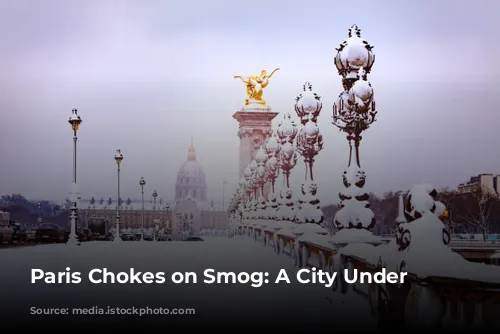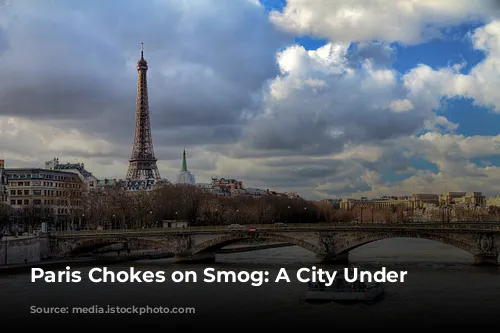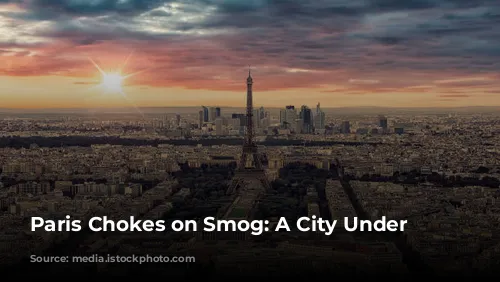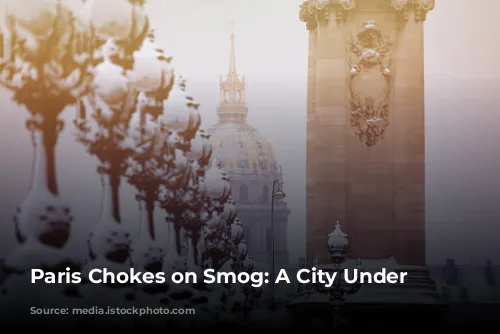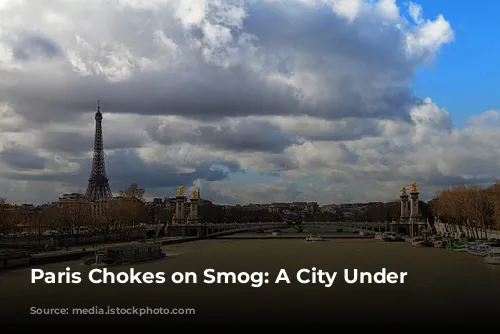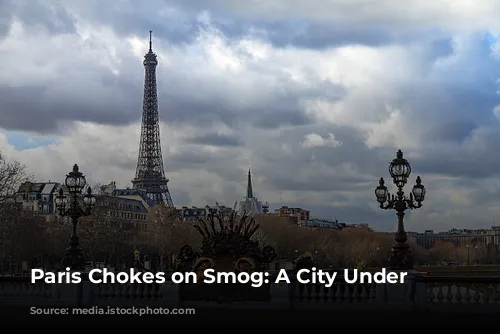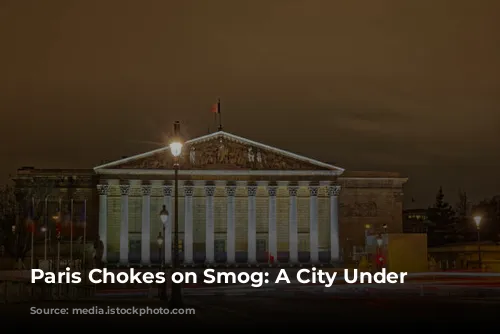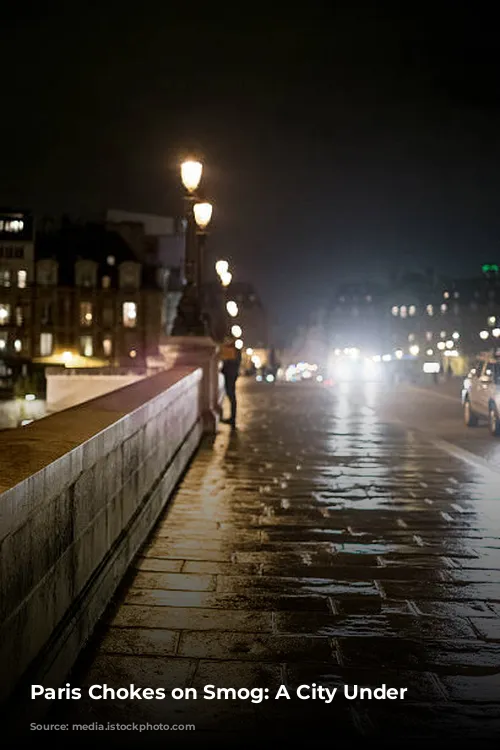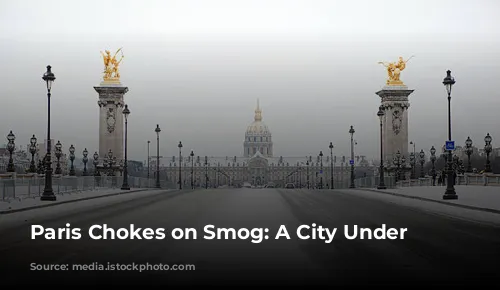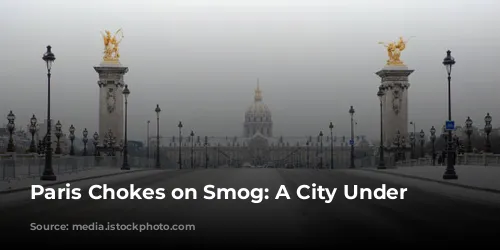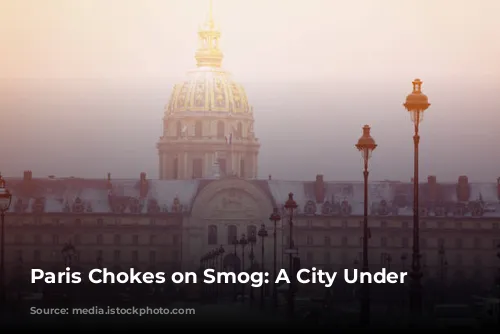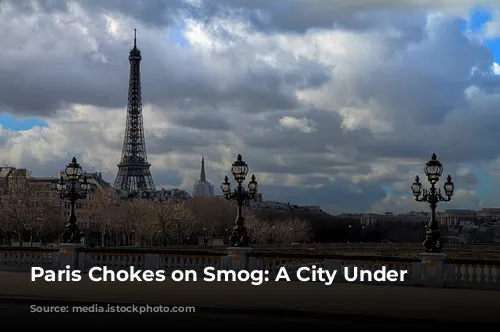The City of Lights is struggling to breathe. The Eiffel Tower, a symbol of Paris, is barely visible through a thick blanket of smog. For over a week, Paris has been enveloped in the worst winter pollution in a decade.
This isn’t just a minor inconvenience; it’s a health crisis. The usual Parisian charm has been replaced by a chilling reality. Cold weather and still air have trapped a deadly cocktail of exhaust fumes, wood-burning smoke, and industrial pollutants.
The air quality is so bad that Stoppollution, a campaign launched by the City Hall, warns that living in Paris right now is like smoking eight cigarettes a day in a small room.
Fighting Back: A City in Action
Paris is taking drastic measures to combat the crisis. City officials implemented a driving ban on alternate days, but this measure was largely ignored by motorists. The ban was lifted for the weekend.
The city also offered free public transportation, as well as free access to the Vélib (bike-sharing service) and Autolib (electric car-sharing service).
During the weekend, the air quality showed some improvement thanks to less traffic and a slight breeze. However, AirParif, the agency that monitors the air in the Paris region, warned that the pollution levels could rise again due to continuing stagnant weather.
A National Crisis: Urgent Measures Unveiled
The government is taking the pollution problem very seriously. Environment Minister Ségolène Royal announced a plan to extend a €10,000 bonus to light trucks and taxis who want to replace their diesel vehicles with electric ones.
This builds on the existing €10,000 incentive offered to individuals who purchase electric cars and taxis. Beginning January 1st, there will also be a €1,000 bonus for buyers of electric scooters.
Paris Mayor Anne Hidalgo declared that all diesel vehicles will be banned from Paris by 2020.
A New Era of Transparency: Fighting for Clean Air
In an effort to improve transparency and accountability, the city government announced a mandatory air quality certificate program for motorists. Starting January 16th, drivers will need to display a color-coded sticker on their vehicles that indicates their emissions levels. This will help to limit traffic during pollution alerts.
The consequences of inaction are dire. The French Institute of Public Health estimates that pollution in France causes thousands of premature deaths each year from cancer and respiratory illnesses.
Dr. Sylvia Medina, a doctor at the health agency, stated that fine particle pollution alone causes 48,000 premature deaths annually in France. This represents 9% of all deaths.
The government has also urged residents to limit outdoor activities. Hospitals throughout the Paris region are on alert for emergency respiratory problems, and over 2,000 asthmatic children have been treated in Parisian emergency rooms.
Paris is fighting for its future. The city is implementing bold measures to combat the crisis, but it will take a concerted effort from the government, citizens, and businesses to create a cleaner and healthier environment for generations to come.
